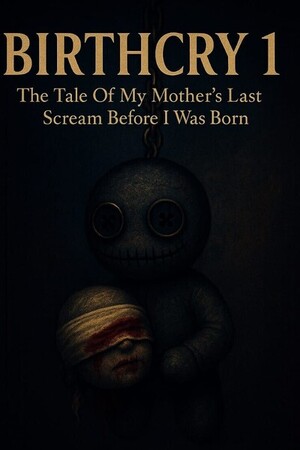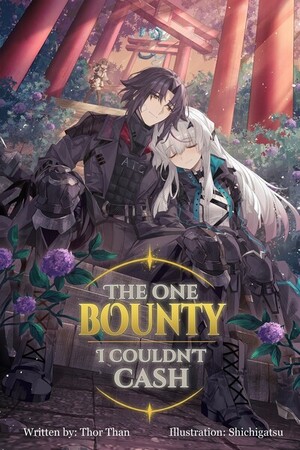Chapter 6:
Good Morning
BIRTHCRY VOLUME1 - THE TALE OF MY MOTHER'S LAST SCREAM BEFORE I WAS BORN
Birth Cry 1: Chapter 6 – Good Morning
It was 6:40 a.m. Sisu's mother called softly from the kitchen, her voice a warm nudge cutting through the damp chill.
"Sisu," she said, melody weaving through the monsoon's hush.
His father entered with a steaming cup of tea, the rising vapor curling like a prayer. Sisu took it silently, cupping the glass between his palms, letting the warmth seep into his bones. He slumped back onto the mat in the hall. The new fan his father bought spun lazily overhead.
Half-awake, he scrolled through his phone—memes, war headlines, death tolls, propaganda, noise. None of it felt real. Just static from a world fraying at the seams.
This world's a circus, sneered Sharp-Tongue. And you're the clown.
At 7:20 a.m., his body moved on autopilot. He rose, walked to the bathroom, bathed. The water was cold. His movements mechanical. Towel around his waist, he rubbed his head dry. Dozens of hairs clung to the cloth.
His breath paused.
"Am I… balding?"
A soft sigh escaped—not surprise, just quiet defeat. Stress had no age limit, and poverty no mercy.
Outside, his father sat cross-legged on the floor, drying his own bald head. Eyes glued to the television. The news cycled through its horrors: war, famine, children sobbing in dust, leaders smirking behind polished podiums.
One president laughed, declaring, “We’ll take that country down.” As if war were a board game.
Sisu stared.
If soldiers are human, then why do they kill other humans?
The voices answered.
The presidents don’t want peace, said Sharp-Tongue. They want a legacy. Control.
So wars start over pride? Sisu thought.
Exactly, Sisu. Most soldiers fight for their salary. Rulers give them money and push them to war, and if they die, they confidently lie: "They fought for the nation, they died for our country." But in truth they fight for their family's food, shelter, clothes—they're used, not inspired by ideals, spat Sharp-Tongue. It's business in blood. And the saddest thing is the poor framed as soldiers and use them as a weapon for the country and rich sit laughing and enjoying the life.
Moreover silence becomes a currency, said Quiet-One. Oil, weapons, trade. Morality—optional.
When a child dies, the whole world must be guilty, Genuine-One whispered. Even the one who looked away.
Sisu shook his head.
"Let's stop this," he muttered. "I've got college."
The voices didn’t leave. They just dimmed—enough for him to move through the motions of another day.
He packed his bag, wore his faded shirt, and stepped out into the morning air. The street smelled of wet dust and fried snacks from a nearby stall. His slippers slapped softly against the damp ground as he walked to the bus stop.
The bus came with a roar, its metal sides sweating from the rain. He climbed in and found a seat by the window, half his face kissed by the morning sun.
Outside, Green State unfurled in motion—vendors setting up stalls, scooters trailing dust, children dragging bags heavier than dreams.
Inside his mind, the voices kept dissecting.
Look at them, scoffed Sharp-Tongue. Chasing illusions.
No, countered Genuine-One. They’re humans. Same pain, same hope.
The bus rattled on, and the city blurred past. When it stopped near the college gate, Sisu stepped down, adjusted his bag, and walked in with slow, steady steps.
Hours bled into grey. Professors droned. Friends laughed. Sisu smiled, hollow. He moved between classrooms like a passenger in his own life—present but not quite there.
Then, that afternoon, reality sharpened when a staff member entered the classroom, clipboard in hand.
“Those who haven’t paid fees—no hall ticket. No exam.”
Sisu froze. Fees unpaid. Anxiety spiked, crawling up his spine like ice.
After class, he walked to his father’s small shop, each step heavier than the last. The streetlights flickered weakly as the rain thickened. He waited for a few seconds, watching his father fix an old fan before speaking.
“I need to pay the fees.”
His father met his eyes. Silent. Then nodded slowly, understanding everything that went unspoken between them.
By morning, as if pulling coins from air, his father arranged the amount.
Sisu left early the next day, the envelope tucked carefully inside his bag. The sky was dull, the air heavy. He reached the admission block and joined the long queue that coiled through the damp corridor.
He clutched the envelope tightly, hand trembling—not from cold, but from something deeper. The humiliation that came with needing, with asking, with existing in spaces that barely acknowledged you.
The clerk laughed at his phone, ignored him.
When Sisu finally stepped forward, the man scowled without looking up.
“Where’s the rubber band? Can’t you see I’m busy?”
Before Sisu could explain, the envelope was snatched from his hands. Barely counted.
“Go. Don’t come back.”
No thanks. No receipt. No acknowledgment that a human being stood before him.
We give them our money, growled Sharp-Tongue, and somehow we’re the ones who have to feel guilty?
They call it education, Genuine-One muttered bitterly.
It’s business, Quiet-One corrected, calm and cold.
Another student stepped up behind him. Confident. Good hair. Clean shirt. Same envelope, unbound.
The clerk smiled.
Sisu looked away, something bitter rising in his throat.
If I looked like him… didn’t stammer… maybe I’d be treated better.
No... it’s not like that, Genuine-One replied, soft, unsure.
But even that voice wavered, because they all knew the truth.
As he walked out into the sunlight, a memory surfaced, unwanted but insistent.
“Looks… they play a role in everything, don’t they?” Sisu murmured to himself. “Even in school, teachers only liked the loud, flashy boys. The good-looking ones. Never the quiet ones like me.”
Genuine-One turned away, unable to meet his gaze. The truth was too heavy to hold.
In this world, hair and a symmetrical face seemed to outweigh a human soul.
Looks mattered. Style mattered. Voice mattered.
Being human? That came last.
He walked slowly toward his department. Students moved in noisy clusters—talking, laughing—their faces blurred like static. Society had sculpted them: shaped by peer pressure, inflated with false confidence, chasing dreams that weren’t their own.
Only one face stood out in the crowd—the friend who had once truly seen him. The rest? Just background noise in a world growing louder and emptier by the day.
But Sisu didn’t flinch anymore.
Let them judge me. I don’t care anymore, he thought.
Focus on your own path, Sisu, Quiet-One nodded softly.
Yet caring and being affected were two different things.
He looked older than nineteen. Hair thinning, the same schoolboy cut clinging to his scalp. A faint mustache struggled to grow, making him look perpetually unfinished.
His stammer drew stares—like he carried a disease. Some laughed. Some pitied. Most didn’t see him at all.
To them, he was a punchline. An afterthought. A glitch in the system.
Seniors and juniors brushed past in the corridors—no apologies, no glances back. As if he didn’t belong. As if he were made of air.
Maybe he didn’t belong. Maybe that was the point.
No trendy shirts. No branded sneakers. No flashy watches. No interest in the performance of it all—the fashion, the posturing, the desperate grasping for approval.
When Sisu tried to wear something nicer once, the voices had returned with a vengeance.
Trying to impress them now? Trying to look hot? hissed Sharp-Tongue.
Don’t change for them. Be yourself, whispered Genuine-One.
Weigh the cost, then move, murmured Quiet-One.
So Sisu remained unpolished. Unfiltered. Unaccepted.
And somehow, in that refusal to conform, he found a strange, lonely kind of strength.
The days kept repeating. He drifted through corridors like a ghost—watching more than speaking, listening more than reacting.
Loneliness no longer hurt the way it used to. What hurt now was the numbness—the slow erosion of feeling anything at all.
He feared becoming just another mask. Just another hollow laugh echoing in empty halls.
But questions still burned inside him—questions no one else seemed to ask. Questions about worth and dignity, about why the world worked the way it did, about what it meant to be human in a place that only valued the surface.
And those questions, at least, kept him alive.




Please sign in to leave a comment.